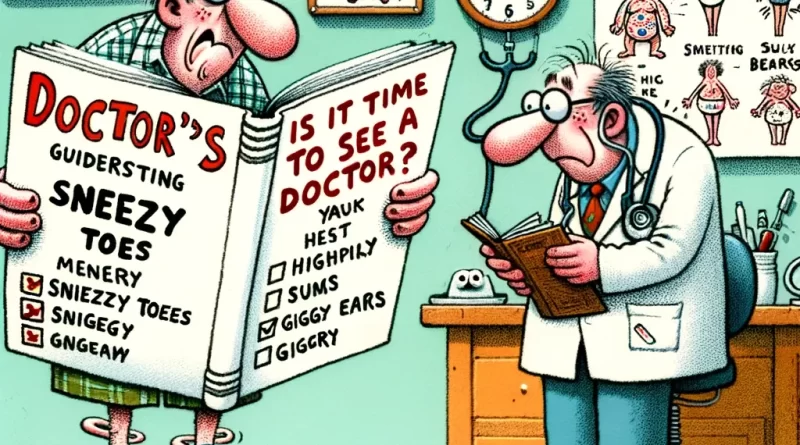Recognizing the Right Time to Consult a Doctor: An Essential Guide to Your Health
In today’s fast-paced world, prioritizing health has become more crucial than ever. However, one common dilemma many face is determining the optimal time to seek medical advice when feeling unwell. This comprehensive guide aims to empower individuals with the knowledge necessary to make informed decisions regarding their health and well-being.
Understanding Symptoms: When to Seek Medical Attention
Recognizing the signs that necessitate a doctor’s visit is paramount. Symptoms can range from mild to severe, and understanding their severity and duration is key to deciding whether to consult a healthcare professional.
Acute Symptoms: Immediate Attention Required
Certain symptoms require immediate medical attention to prevent more serious health issues. These include, but are not limited to:
- Chest Pain or Pressure: This could indicate a heart attack or other serious heart conditions.
- Difficulty Breathing: Severe breathing problems can be a sign of asthma, pneumonia, or other respiratory conditions.
- Severe Abdominal Pain: This could be a symptom of appendicitis, gallstones, or other urgent gastrointestinal issues.
- Sudden Weakness or Numbness: Especially on one side of the body, which could signal a stroke.
- Uncontrolled Bleeding: Requires prompt medical intervention to prevent significant blood loss.
Persistent Symptoms: When to Consult a Doctor
Not all symptoms necessitate immediate emergency care, but if certain conditions persist, it’s advisable to consult a healthcare provider. These include:
- Persistent Fever: A fever lasting more than a few days could indicate an infection or other underlying condition.
- Ongoing Pain or Discomfort: Chronic pain, whether in the joints, back, or elsewhere, can significantly impact quality of life and may require professional assessment.
- Unexplained Weight Loss: Losing weight without trying could be a sign of various health issues, including thyroid problems, diabetes, or even cancer.
- Changes in Bowel or Urinary Habits: Persistent changes can be a sign of gastrointestinal issues or urinary tract problems.
- Fatigue: While often linked to lifestyle factors, ongoing fatigue warrants a health evaluation to rule out underlying conditions.
The Importance of Regular Health Check-Ups
Beyond recognizing when to see a doctor for specific symptoms, regular health check-ups play a crucial role in maintaining overall well-being. These appointments provide an opportunity for early detection of potential health issues, even before symptoms become apparent.
Preventive Healthcare: A Proactive Approach
Engaging in preventive healthcare measures, such as vaccinations, screenings, and lifestyle counseling, is essential for long-term health. Regular check-ups allow healthcare providers to tailor recommendations based on individual health profiles and risk factors.
Building a Healthcare Relationship
Establishing a relationship with a healthcare provider ensures continuity of care, making it easier to manage and treat any health issues that may arise over time. This relationship also fosters an environment of trust, encouraging open and honest communication about health concerns.
Conclusion: Taking Charge of Your Health
Understanding when to seek medical advice and the importance of regular health check-ups are crucial components of managing your health. By paying close attention to your body and maintaining a proactive approach to healthcare, you can ensure that you are taking the necessary steps to support your well-being.
Remember, when in doubt, it’s always better to err on the side of caution and consult a healthcare professional. Taking charge of your health is not just about addressing immediate concerns but also about investing in your long-term health and quality of life.



